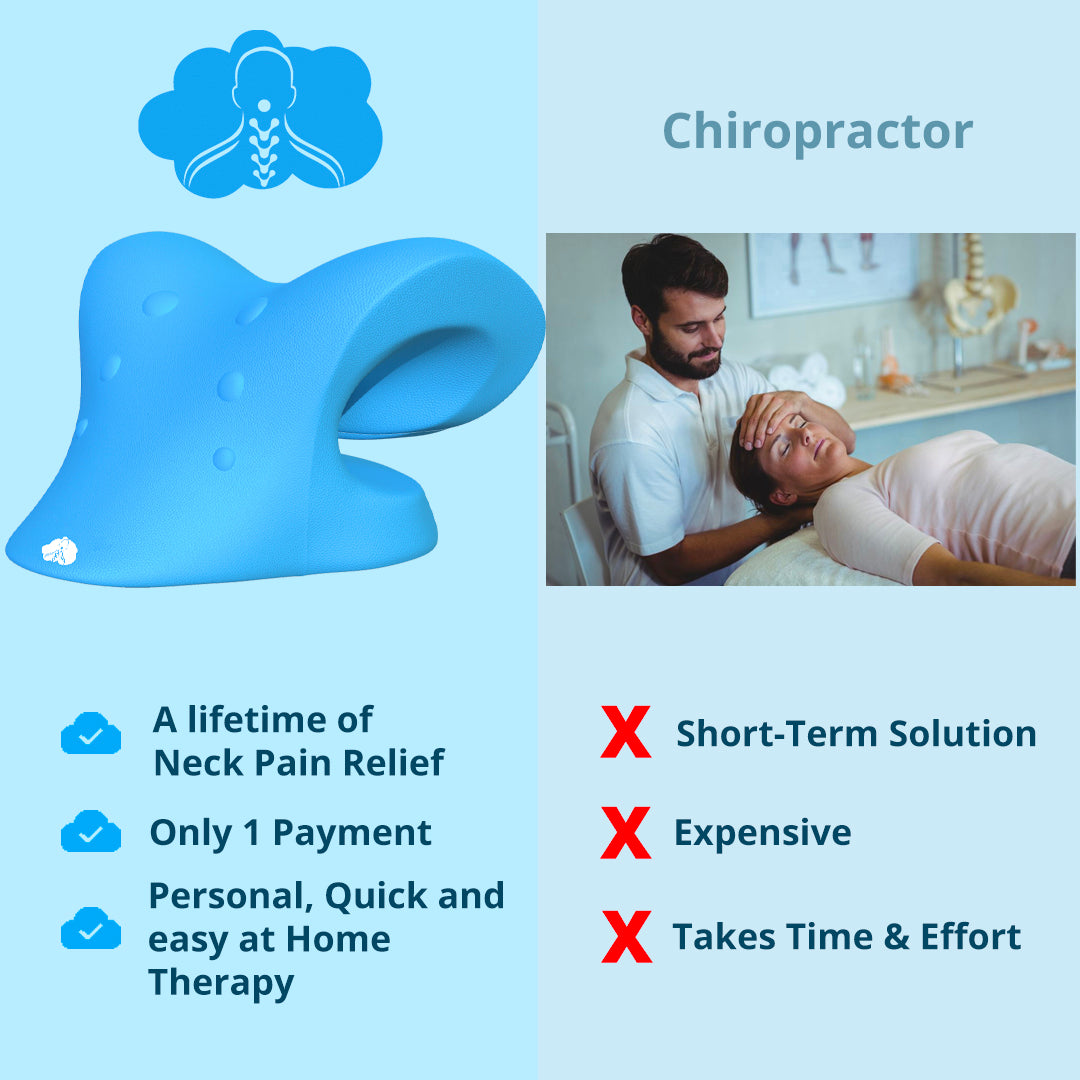Neck Cloud: Ergonomic Layout for Maximum Comfort and Discomfort Decrease
Neck Cloud: Ergonomic Layout for Maximum Comfort and Discomfort Decrease
Blog Article
The Influence of Anxiety on Neck Pain: Techniques for Decreasing Stress and Pain
In today's busy globe, it's no trick that tension has ended up being a common consider the beginning and worsening of neck pain. The elaborate partnership between stress and muscular tissue tension usually leaves individuals looking for relief from the pain that takes place. By checking out targeted methods targeted at reducing stress and promoting relaxation, one can begin to resolve the origin creates of neck pain and job in the direction of a more balanced state of health. Join us on a journey to unwind the influence of anxiety on neck discomfort and uncover efficient means to reduce discomfort and boost overall high quality of life.
Recognizing Stress-Related Neck Pain
Stress-related neck discomfort can materialize as tension, stiffness, or discomfort in the neck and shoulder area. The connection between stress and neck pain exists in the body's physiological reaction to tension, which can result in muscle mass stress and tightness in the neck muscles.

Identifying Common Stress Areas
Frequently experienced by people under anxiety, stress locations in the body can give beneficial insights into the physical symptoms of mental pressure. One usual tension area is the neck, where stress commonly shows up literally. Tension frustrations, tight neck muscles, and limited series of motion are usual signs of stress-related neck stress. The shoulders are one more typical area where stress collects. Anxiety can trigger the muscle mass in the shoulders to tighten, resulting in pain and pain. In addition, the upper back is vulnerable to tension accumulation, particularly in people that experience persistent stress and anxiety. Poor posture and extended resting can exacerbate stress in this area. The jaw is also a common location for stress-related stress, as lots of people clench their jaw or grind their teeth when worried. Knowing these common tension locations can aid people acknowledge the physical indicators of stress and anxiety and take steps to address them before they escalate into chronic discomfort or discomfort.
Carrying Out Relaxation Methods
To properly take care of stress-related tension in the body, carrying out leisure techniques is critical. Leisure methods are useful devices for minimizing neck discomfort created by stress. Deep breathing workouts can assist soothe the mind and relax tense muscles in the neck and shoulders (neck cloud). Exercising mindfulness meditation can additionally be useful in relieving anxiety and promoting relaxation. Modern muscle mass leisure, where you methodically strained and afterwards unwind various muscle mass teams, can launch built-up stress in the neck area. In addition, activities like yoga exercise and tai chi include both physical movement and relaxation, making them efficient techniques for reducing anxiety and neck pain. Taking routine breaks throughout the day to stretch and take a break can prevent muscle stiffness and tension from accumulating. By including these leisure methods into your day-to-day routine, you can help manage anxiety degrees, reduce tension in the neck, and ease discomfort connected with stress-induced neck pain.
Integrating Self-Care Practices
Including self-care techniques is important for preserving total health and managing stress-related neck discomfort effectively. Taking part in normal physical task, such as mild stretching exercises or yoga, can assist minimize tension in the neck and shoulders. Practicing good position throughout the my review here day and taking regular breaks from extended resting or screen time can likewise prevent pressure i was reading this on the neck muscles.
In addition, prioritizing appropriate rest and developing a consistent sleep routine can contribute significantly to lowering anxiety levels and advertising leisure. Developing a calming going to bed regimen, such as reviewing a book or taking a cozy bathroom, can aid prepare the mind and body for relaxing sleep. Additionally, keeping a balanced diet regimen abundant in nutrients and staying hydrated can sustain overall health and reduce swelling that may aggravate neck discomfort.
Incorporating mindfulness practices, such as deep breathing exercises or meditation, can help manage stress and promote relaxation. Requiring time for oneself, participating in leisure activities, and establishing borders to secure individual time are likewise vital facets of self-care that can add to decreasing stress and minimizing neck discomfort.
Looking For Expert Help
Just how can individuals properly address consistent neck discomfort that is influencing their life and well-being? Seeking professional aid can be a critical action in handling and minimizing neck discomfort. Consulting with medical care specialists such as chiropractors, physical specialists, or orthopedic professionals can offer valuable understandings and tailored treatment strategies. These professionals can perform complete assessments to diagnose the underlying causes of neck pain and recommend suitable interventions.
Chiropractic doctors specialize in back control strategies to boost alignment and minimize tension in the neck area. Physiotherapists offer targeted stretches and workouts to reinforce muscles, improve flexibility, and improve see page total neck function. Orthopedic experts can provide innovative medical interventions such as injections or medical alternatives for serious cases of neck discomfort.
Conclusion

Stress-related neck pain can show up as stress, stiffness, or discomfort in the neck and shoulder location. The link in between stress and neck discomfort lies in the body's physiological response to anxiety, which can result in muscle mass stress and rigidity in the neck muscular tissues. Tension headaches, tight neck muscle mass, and limited array of movement are typical symptoms of stress-related neck tension. By incorporating these relaxation strategies right into your day-to-day routine, you can help take care of stress and anxiety degrees, decrease stress in the neck, and relieve pain associated with stress-induced neck discomfort.

Report this page